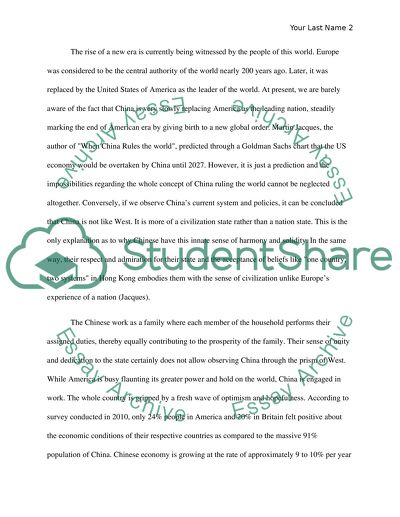Cite this document
(“Is the rise of China good or bad news for the pursuit of global Essay”, n.d.)
Is the rise of China good or bad news for the pursuit of global Essay. Retrieved from https://studentshare.org/sociology/1482865-is-the-rise-of-china-good-or-bad-news-for-the
Is the rise of China good or bad news for the pursuit of global Essay. Retrieved from https://studentshare.org/sociology/1482865-is-the-rise-of-china-good-or-bad-news-for-the
(Is the Rise of China Good or Bad News for the Pursuit of Global Essay)
Is the Rise of China Good or Bad News for the Pursuit of Global Essay. https://studentshare.org/sociology/1482865-is-the-rise-of-china-good-or-bad-news-for-the.
Is the Rise of China Good or Bad News for the Pursuit of Global Essay. https://studentshare.org/sociology/1482865-is-the-rise-of-china-good-or-bad-news-for-the.
“Is the Rise of China Good or Bad News for the Pursuit of Global Essay”, n.d. https://studentshare.org/sociology/1482865-is-the-rise-of-china-good-or-bad-news-for-the.


